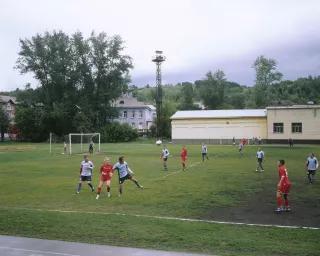
Many of us are happy about the 2018 FIFA World Cup. Football has the power to unite people, and thousands of international visitors are coming into Russia and bringing open-mindedness and vibrancy to a country that has recently been seen as on the road toward isolation. Foreign visitors contradict the idea that Russia is unpopular and surrounded by enemies; the charm of these football fans could, in a very visible way, dissolve many tensions. This is exactly what happened during the “summer fairytale” of the 2006 FIFA World Cup in Germany; back then, football spread the magic of tolerance and grace.
Many people are nervous about what will happen after the end of the World Cup. Concerns are voiced above all by those who remain socially and politically active but do not want to be constrained by the officially prescribed norms. The Heinrich Böll Foundation’s partner organizations fear that in late summer and into the fall, when the last foreign football fan leaves, Russian domestic policy will start becoming even more rigid and the government will crack down on those who have their own opinions and strive for change in Russia. For those activists, the World Cup seems to be the last breath of freedom.
We would like to use the World Cup as a chance to provide you with more information about Russia. The Moscow office of the Heinrich Böll Foundation has prepared a series of texts and video materials on various topics relevant to Russia that are going to be published in the coming weeks. We believe these topics are important and necessary to talk about in our country; they include democratic development and civic engagement, gender equality, and the environment. These texts are not always related to football, but will shed light on problems that are of interest to the local community and that determine the course of our foundation’s work in Russia. They show the many sides of Europe’s largest country — a country that deserves serious interest and attention.